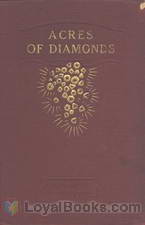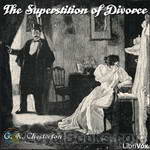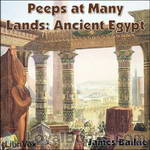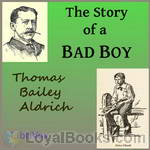|
Books Should Be Free Loyal Books Free Public Domain Audiobooks & eBook Downloads |
|
|
Books Should Be Free Loyal Books Free Public Domain Audiobooks & eBook Downloads |
|
Top Authors |
|---|
|
Book type:
Sort by:
|
By: Timothy S. Arthur (1809-1885) | |
|---|---|
 Trials and Confessions of a Housekeeper
Trials and Confessions of a Housekeeper
Is housekeeping such a trial? Mrs. Smith thinks so and confesses all in this merry account of her escapades and near disasters! | |
By: Leolyn Louise Everett (1888-1971) | |
|---|---|
 Sleep-Book
Sleep-Book
This is a compilation and publication of sleep-related poetry, exalting the delight of sleep, as well as bemoaning the lack of it. (written by Clarica) | |
By: Russell Herman Conwell (1843-1925) | |
|---|---|
 Acres of Diamonds
Acres of Diamonds
Text of famous inspirational lecture and biography of Russell Conwell, a Baptist minister and Temple University Founder | |
By: M. M. Pattison Muir (d1931) | |
|---|---|
 The Story of Alchemy and the Beginnings of Chemistry
The Story of Alchemy and the Beginnings of Chemistry
A light journey through the history of chemistry, from its start in the obscure mysteries of alchemy to what was, for the author, the cutting edge of the development of modern atomic theory … and whose developing blind ends we can now see with the advantage of hind sight. | |
By: Chesterton, G. K. | |
|---|---|
 The Superstition of Divorce
The Superstition of Divorce
This short book was written in 1920, and in it Chesterton, with his usual wit and incisive logic, presents a series of articles defending marriage and indicating the weaknesses in divorce. He did this 16 year before the first Christian denomination in the world allowed it’s members to divorce. Till then Christendom was unanimous in standing against it. Chesterton saw clearly the trends of this time, and delivered this defense. | |
By: Eleanor Gates (1875-1951) | |
|---|---|
 The Poor Little Rich Girl
The Poor Little Rich Girl
The Poor Little Rich Girl is a children’s fantasy about a little girl named Gwendolyn who is lonely and longs for a friend. But she is isolated by rich parents who ignore her and left to the care of servants who are indifferent. Her nanny’s carelessness with some medicine plunges Gwendolyn into a bewildering world in which metaphors literally come to life. | |
 The Rich Little Poor Boy
The Rich Little Poor Boy
| |
 Alec Lloyd, Cowpuncher
Alec Lloyd, Cowpuncher
| |
 The Plow-Woman
The Plow-Woman
| |
 Apron-Strings
Apron-Strings
| |
By: Eleanor Gates (1875-1951) | |
|---|---|
 Biography of a Prairie Girl
Biography of a Prairie Girl
This book is a wonderful way to learn about how the prairies were years ago, but you will hardly feel you are learning because you will be caught up with the 'little girl', living with her as she grows up far away from any large city. Very well written, in this book you live, worry, and rejoice, along with the little girl. Whether it is through a prairie fire, raising some interesting and queer pet, having fun at some big prairie-time event, or worming her way out of trouble, the little girl continues to grow, until at the end, you leave, not a little girl, but a young lady stepping into womanhood. | |
By: Lacy Collison-Morley | |
|---|---|
 Greek and Roman Ghost Stories
Greek and Roman Ghost Stories
A non-fiction work, comparing and collecting ghost stories by Classical Greek and Republican or Imperial Roman authors. | |
By: Stephen Vincent Benét (1898-1943) | |
|---|---|
 A Selection from Young Adventure, A Book of Poems
A Selection from Young Adventure, A Book of Poems
Stephen Vincent Benét (July 22, 1898 – March 13, 1943) was an American author, poet, short story writer and novelist. He is best known for his book-length narrative poem of the American Civil War, John Brown’s Body (1928), for which he won a Pulitzer Prize in 1929, and for two short stories, “The Devil and Daniel Webster” and “By the Waters of Babylon”. It was a line of Benét’s poetry that gave the title to Dee Brown’s famous history of the destruction of Native American tribes by the United States: Bury My Heart at Wounded Knee. | |
 Young People's Pride
Young People's Pride
| |
By: Jewish Publication Society of America | |
|---|---|
 The Hallel (Psalms 113-118)
The Hallel (Psalms 113-118)
Hallel (Hebrew: הלל “Praise [God]“) is part of Judaism’s prayers, a verbatim recitation from Psalms 113-118, which is used for praise and thanksgiving that is recited by observant Jews on Jewish holidays. Summary from WikipediaRead by Délibáb, D.E. Wittkower, Jc Guan, Katie Gibboney, Leon Mire, and Scott Sherris | |
By: Abner Doubleday (1819-1893) | |
|---|---|
 Reminiscences of Forts Sumter and Moultrie in 1860-'61
Reminiscences of Forts Sumter and Moultrie in 1860-'61
Abner Doubleday was a busy man. He rose to be a major general during the American Civil War, started the first cable car company in San Francisco, and is credited (though perhaps erroneously) with inventing the game of baseball.In 1861, he had the distinction as a captain to be second-in-command of Ft. Moultrie, one of the harbor defenses of Charleston, SC.. When that state seceded from the Union, Doubleday and the garrison of artillerists manning the fort were cut off from supplies and reinforcements... | |
 Chancellorsville and Gettysburg
Chancellorsville and Gettysburg
Abner Doubleday began the Civil War as a Union officer and aimed the first cannon shot in response to the bombardment opened on Ft. Sumter in 1861. Two years later, after a series of battles (including Antietam, where he was wounded), Doubleday took over a division in the Army of the Potomac's 1st Corps.These are his memoirs of service in two of the War's great campaigns. At Chancellorsville, a very promising start made by General Hooker against Lee's Confederate forces fell to a defeat when, in... | |
By: Phaedrus (c. 15 BC - c. AD 50) | |
|---|---|
 The Fables of Phaedrus
The Fables of Phaedrus
The fable is a small narrative, in prose or verse, which has as its main characteristic the aim of conveying a moral lesson (the “moral”), implicitly or, more normally, explicitly expressed. Even though the modern concept of fable is that it should have animals or inanimated objects as characters – an idea supported by the works of famous fabulists such as Aesop and La Fontaine – Phaedrus, the most important Latin fabulist, is innovative in his writing. Although many of his fables do depict animals or objects assuming speech, he also has many short stories about men, writing narratives that seem to the modern eye more like short tales than fables... | |
By: James Baikie | |
|---|---|
 Peeps at Many Lands: Ancient Egypt
Peeps at Many Lands: Ancient Egypt
Written primarily for children, James Baikie’s ‘peep’ at ancient Egypt is a really well done, historical account of the ways of that fascinating land so many years ago. It has stood well the test of time, being both well researched and well written. It’s a fun book for everyone, and families especially will enjoy listening together. | |
 The Sea-Kings of Crete
The Sea-Kings of Crete
| |
By: Thomas Bailey Aldrich (1836-1907) | |
|---|---|
 The Stillwater Tragedy
The Stillwater Tragedy
Thomas Bailey Aldrich was an American poet, novelist and editor. Of his many books of poetry and fiction, he may be best known for his semi-autobiographical novel, The Story of a Bad Boy and his collection of short stories, Majorie Daw and Other People. The Stillwater Tragedy which was published in 1880 is set in a small New England manufacturing town whose tranquility is disturbed first by the murder of one of its prominent citizens followed soon thereafter by a general strike of all the trades-unions. As the story develops, Richard Shackford, the murdered man’s nephew, finds himself inextricably caught up in both these events. | |
 The Story of a Bad Boy
The Story of a Bad Boy
Thomas Bailey Aldrich was a child when his father moved to New Orleans from Portsmouth, New Hampshire. After 10 years, Aldrich was sent back to Portsmouth to prepare for college. This period of his life is partly described in his semi-autobiographical novel The Story of a Bad Boy (1870), in which "Tom Bailey" is the juvenile hero. Critics have said that this novel contains the first realistic depiction of childhood in American fiction and prepared the ground for Adventures of Huckleberry Finn. Aldrich went on to associate with many of the literati of his time in New York City, and was editor of the Atlantic Monthly in the 1880's... | |
 An Old Town By the Sea
An Old Town By the Sea
| |